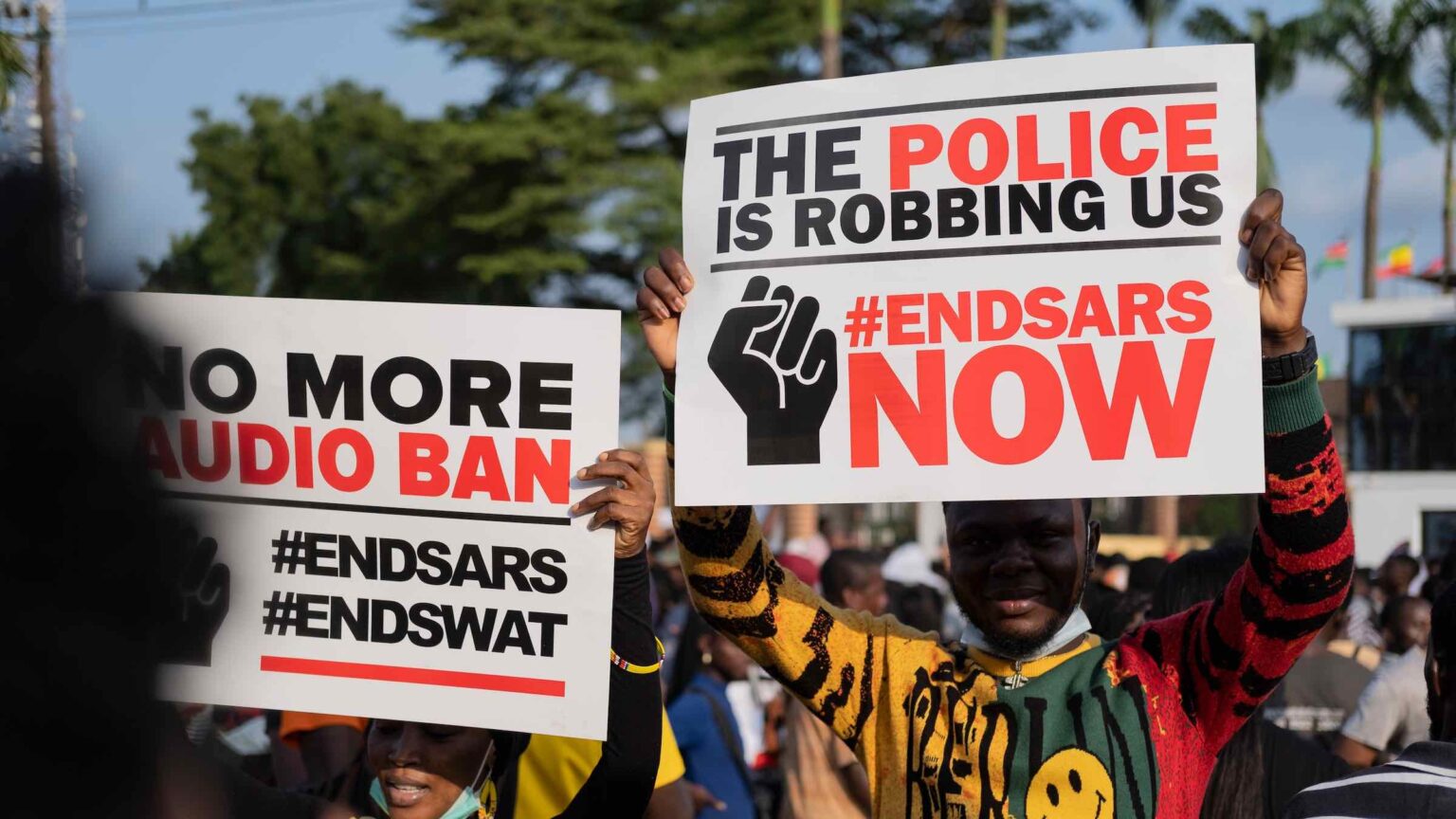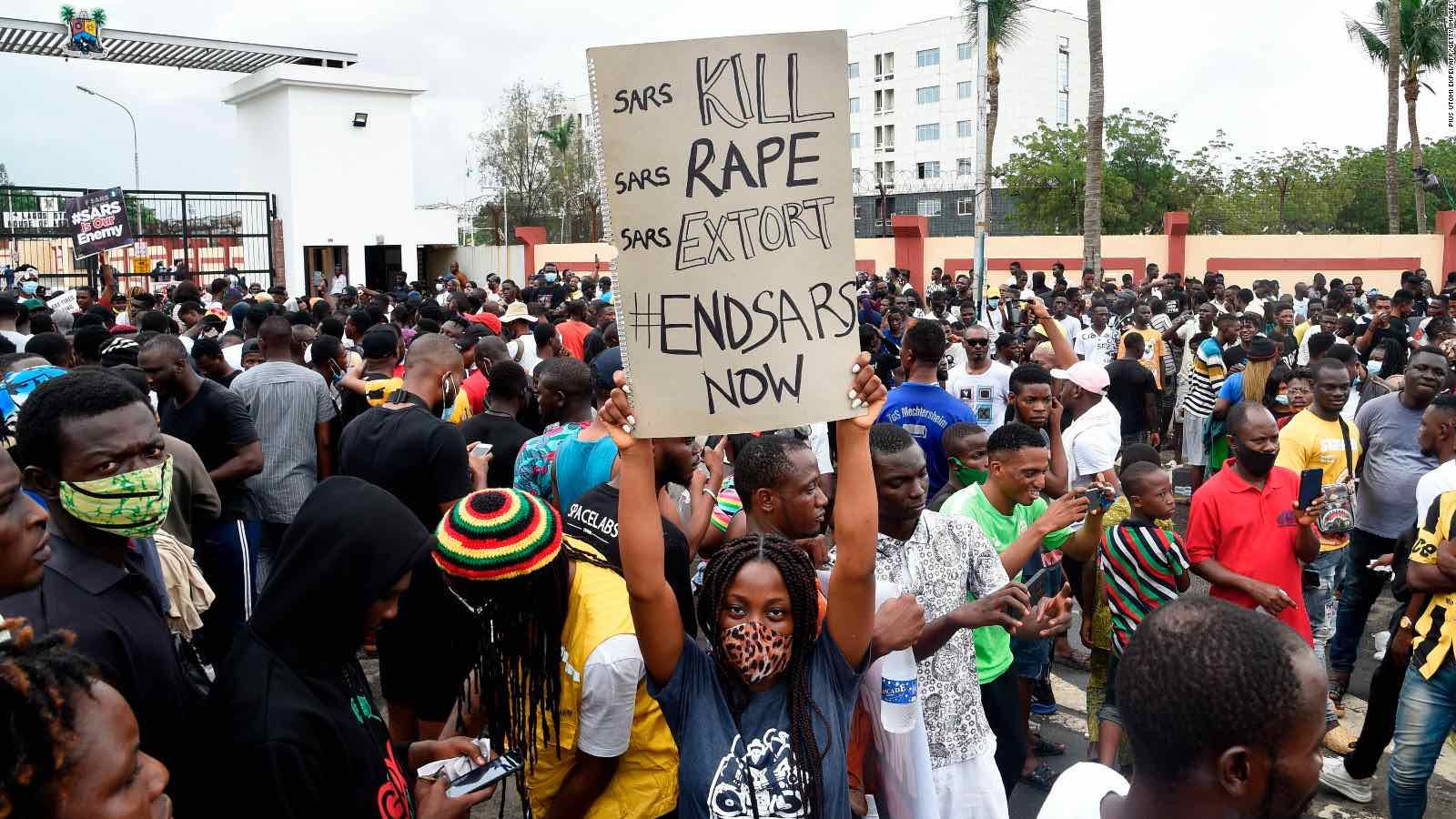
Are the End SARS protests in Abuja, Nigeria working? Uncover the latest
Amidst the Black Lives Matter protests in the U.S., another mass of protests started to emerge an ocean away. You might have seen the #EndSARS on Twitter or Instagram lately, as the Nigerian movement has spread worldwide. SARS, a squad infamous for being abusive toward Nigerian citizens. From celebrities to ordinary citizens, people are protesting & marching to end SARS, which has plagued Nigeria for almost thirty years.
The protests may be protesting against violence, but the protestors have been met with even more violence, culminating in what has been called the darkest day in Nigeria. Here’s a look into the month-long protests to #EndSARS and what has happened to stop the violence enacted by SARS officers.

Almost three decades of controversy
The Special Anti-Robbery Squad, or SARS, was formed in 1992 to stop crime in Nigeria. It was initially attempting to stop the violence & corruption which appeared after Nigeria won independence in 1960, according to Time. SARS is the second iteration of an anti-robbery unit, but it failed primarily because they weren’t associated with any government agency and officers wore plainclothes while on service, according to Time.
Superintendent of Police Simeon Danladi Midenda spearheaded SARS, specifically to “ambush robbers”, according to Time, but they also covered other crimes like vehicle theft & kidnapping. However, SARS has been heavily criticized for their notorious abuse, with varying allegations of wrongful death, raping men & women, extortion, murder, kidnapping, robbery, and more.
Only a few years after SARS was created, there were already reports of officers abusing their power & torturing people to retrieve information, according to Time. According to Nigerian news outlet Pulse, over the years, SARS became “a national scourge” that targeted “Nigerian youth with dreadlocks, piercings, cars, expensive phones and risque means of expression”.

First waves of #EndSARS
This isn’t the first wave of the #EndSARS trend, as there have already been many attempts to stop SARS. According to The Washington Post, SARS was supposedly going to demobilize three times across 2014 to 2017; however, no dramatic steps were taken to curb the abuse. In 2017, the hashtag gained traction, especially after the World Internal Security and Police Index ranked Nigeria as the country with the worst police.
After the hashtag started, President Buhari officially criminalized torture when he signed the Anti-Torture Act, according to Time. While other figures like Nigerian vice president Yemi Osinbajo demanded a change, there were still eighty-two torture & wrongful death reports between 2017 to 2020, accroding to Time.
Despite the intentions of the act, according to Amnesty International, no police officer has been charged, despite the reports. In 2016, the World Internal Security and Police Index found eighty-one percent of responders said they “had paid a bribe to a cop in the past year”, according to Time, with Amnesty International saying SARS officers regularly participated in acts of torture and “inhuman” acts of punishment.

Reigniting the hashtag
It’s been a few years since its original iteration, but a recent event sparked the new movement that has since crossed borders. The New York Times credits an October 3rd viral video, which showed an unprovoked killing of a man by a SARS officer, to have caused this resurgence of the #EndSARS movement. People went online to share videos of police brutality in Nigeria, fueling the viral trend.
SARS made the situation worse when they declared the video was fake & arrested the person who took the video, inciting even more anger. The protests first started on October 8th, when protestors slept outside the Lagos State Governor’s House. At first, the protests involved many sleep-in protests in front of government buildings. It’s since been heavily promoted online, with people from around the world asking to end SARS.
On October 11th, the EndSARS movement officially made five demands: immediately release all arrested protestors, justice for deceased victims & appropriate compensation for their families, set up an independent body to oversee investigation & prosecution of every report of police misconduct, force psychological evaluation & retraining of all disbanded officers, and increase police officer salaries to compensate for their work.

Violence in the 2020 Protests
Violence started as early as October 10th, when police allegedly injured multiple people with one protestor, Jimoh Isiaka, reportedly getting shot, according to Nigerian news outlet Punch. The violence escalated over the days of the protests, leading President Muhammadu Buhari to disband SARS on October 12th, according to The New York Times. However, since this merely redeployed SARS elsewhere, the protests didn’t stop.
Despite the numerous social media videos, security footage, eyewitness accounts, and other forms of evidence, the Nigerian army called the reports “fake news”, according to NPR. As of October 25th, The Washington Post reported estimates stated at least 100 people have died since the start of the protests.

Black Tuesday
October 20th saw the darkest turn for the protests. That Tuesday is now known as “The Lekki Toll Gate Massacre”, when soldiers from the Nigerian Army opened fire on protestors at the Lekki Toll Gate. Nigerian musician DJ Switch was on Instagram Live, where she witnessed soldiers firing into the peaceful protest. Many were also injured in the chaos, with other protestors attempting to help those who were wounded.
Numbers vary, with twelve protestors confirmed dead by Amnesty International, but some estimate as many as forty-eight people died on Black Tuesday, according to The Washington Post. Following the massacre, a government lockdown ensued and a curfew was mandated, according to Nigerian website Nairametrics, slightly halting protests.
However, marches & protests continued around the world with the Nigerian diaspora & allies in the U.S., UK, Canada, & other countries speaking out against SARS. Even after Black Tuesday, security footage caught more police shootings, according to the BBC. Buildings were also set on fire, according to the BBC, including a bus station, TV station, and Nigerian Ports Authority.

What progress has been made?
According to Time, Nigerian president Muhammadu Buhar announced Nigeria would be ending SARS, saying, “The disbandment of SARS is only the first step in our commitment to extensive police reform”. However, Time reported another police unit has formed. Now called SWAT, or Special Weapons and Tactics, some people are questioning whether police brutality will continue to escalate.
According to the BBC, more reports of looting caused Nigeria’s chief of police to mobilize police resources. One widely discussed looting was from a warehouse full of packages meant to be for coronavirus aid, but were never distributed, according to Voice of America. Protestors argued it was their right to get the food, as many have died of hunger during the pandemic, according to Voice of America.
The Nigerian army continues to deny their involvement in the events of Black Tuesday. The many promises the government made in the past leave many Nigerians doubtful of any change, according to The New York Times, as a promised investigation into police brutality still hasn’t begun.



